|
Word Gems
exploring self-realization, sacred personhood, and full humanity
The argument from natural revelation
return to the main-page article on "Image Of God: Part I"
At the outset of this journey, I stated that the evidence for a Mother-Father God is rather thin. This third argument shall be the thinnest of the thin.
Or will it?
When I speak of evidence, I do so with a view toward offering reasonable assurance to the enquiring mind. But, there is no "God in a test-tube," and nothing I say on this page will be conclusive. Even so, the argument of what I call "natural revelation" will be the evidence that truly counts... to oneself.
Even the best evidence is a slippery slope. There is no absolute proof for anything. Nothing is conclusive; everything can be set aside; all can be gainsaid - doesn't matter if you've used the scientific method or court-approved rules of evidence.
But there is one thing that is a little harder to countermand; I mean, for oneself. Others will disbelieve, but you will never doubt. And I refer to the testimony of natural revelation. Some call it "mystic revelation, the mind's true liberation." It is the personal testimony of your own soul, evidence just for you, and no one else - the kind the Spirit-Troubadours provide.
the universe - a purposeless accident?
-
Dr. Paul Davies, The Mind Of God: "I belong to a group of scientists who do not subscribe to a conventional religion but nevertheless deny that the universe is a purposeless accident... [it has been] put together with an ingenuity so astonishing that I cannot accept it merely as brute fact... I have come to the point of view that mind - i.e. conscious awareness of the world - is not a meaningless and incidental quirk of nature."
A growing number of scientists today are rejecting a materialistic view of the universe and begin to admit to an underlying metaphysical element.
More and more, physicists seem to speak as philosophers and spiritualists. They talk of non-material substance, thought and mind as the very substrata of reality; that the entire universe - and we as a part of it - is evolving toward some higher level of consciousness.
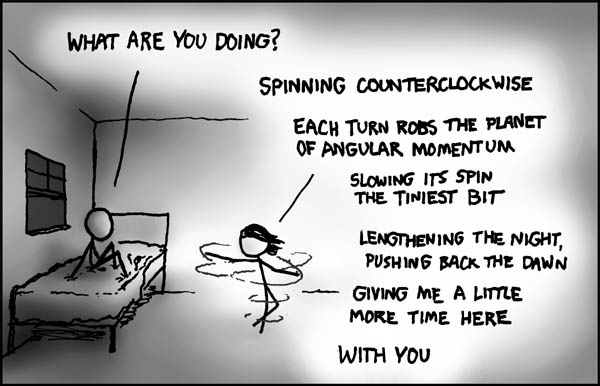
William Henderson in his Science of Soulmates: The Direct Path To The Ultimate plays with these ideas. We are told that the universe could not have happened by mere chance. The laws of probability do not allow for it. There has not been enough time, even since the Big Bang, for randomness to have created the cosmos. A mathematical impossibility; therefore, what we see about us is the fruit of purpose and design.
If the universe has a purpose, then we must be part of it; and if we are growing toward a greater consciousness, just what is it that we are to become conscious of?
We are informed by Silver Birch of the purpose of life:
"You cannot convince people... They can only convince themselves. You cannot convert people; they can only convert themselves. Spiritual power must work its own will, and not until the soul is receptive can the individual accept the truth. Never forget that the supreme purpose of life is the unfoldment of the spirit...These are the important principles to keep in mind."
|
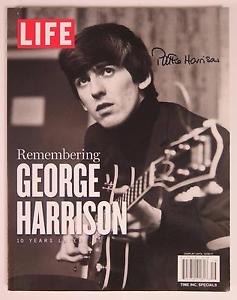
While My Guitar Gently Weeps
I look at you and see the love there that's sleeping
While my guitar gently weeps
I don't know how you were diverted
You were perverted too
I don't know how you were inverted
No one alerted you…
|
Can one hundred thousand love songs be wrong?
As Paul McCartney said, the world is filled with silly love songs.
Why don't we have songs about something else? How about railroads? I have a friend who loves model trains. I'm sure he would sing it if Paul wrote it. But why does the world want to endlessly sing about romantic love? Someone once did a study reporting that, on average, people think of sexual/romantic love every 15 seconds. But we do not think of railroads every 15 seconds? I mean, apart from my friend.
|

|
-
Dido,
-
Here With Me
"I can't hide, I won't sleep, I can't breathe, I cannot Be, until you're resting here, with me"
|
Other animals have their ordained and compartmentalized times for coming together; after that, they're done for awhile; but the human species seems to be obsessed with eros. For The Adam, the airwaves and thoughtwaves, even his dreams, are filled with images of romantic love.
We are both like and unlike the other animals regarding male-female affinity. While there are similarities, humans are far more involved in the process. For The Adam, made in the divine image, something more is in play.
|
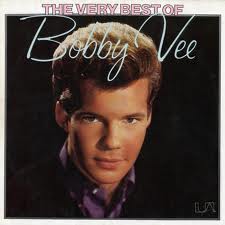
|
Bobby Vee,
Talk To Me, Talk To Me
"Talk to me, talk to me, in your own sweet gentle way, Let me hear, tell me Dear, tell me you love me so, tell me what I want to know, Baby, can't you see, I love you so"
|
Could something so pervasive and invasive, so compelling and commanding, so insistent to the male-female psyche, have anything to do with the purpose of human life?
And since human life seems to be at the top of the food chain, could this have anything to do with the purpose of everything - the universe itself?
|

|
- Bruce Springsteen,
- Hungry Heart
... don't make no difference what nobody says, ain't nobody wanna be alone, everybody's got a hungry heart...
|
-
A reader told me a story of her three year-old grandchild: One day at the park, she told her little boy a story. Once, when she had been very sick, she told God that she really wanted to be a grandma, and she prayed that God would allow her to have a little boy. "And then He sent you to me," Grandma beamed. The tot immediately corrected his grandma: "You mean her! Grandma!" Shocked and puzzled by this, Grandma asked, "What do you mean?" "God is a she, Grandma! so you asked her if I could come, and she said yes!" This little boy had had no religious instruction and his prescience of these things confounded all.
Heloise and the unfolding mysteries of the universe
How did an 18 year-old girl, surrounded by an ecclesiastical army of Wrathful-Celibate-Father theologians, come to defeat them all and, in the process, perceive many of the sublime truths of authentic romantic love?
.jpg)
Heloise suffered greatly in her life; no doubt, the actuating principle of her wisdom.
During her "long dark night," at times she became angry, even furious; but she did not give herself over to poisonous rancor toward her enemies. Her spirit, essentially, remained free and open. And the Spirit-Troubadours, amidst her weeping and grief, found opportunity to teach her "all important things" (I Jn. 2: 27).
Heloise's suffering represents not the pleasant and happy lessons one will take in Summerland. Our present world is the austere and severe classroom.
-
Dr. Mortimer Adler: "According to an ancient Greek myth, man was originally a composite being, half male and half female. A capricious god split him in two, with the result that the separated male and female have sought ever since to become reunited with the 'other half.' Modern psychologists make the same point in a somewhat different way when they say that the deepest need of man is the need to overcome his separateness, to leave the prison of his aloneness."

as above, so below
|
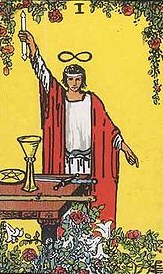
"That which is Below corresponds to that which is Above, and that which is Above, corresponds to that which is Below, to accomplish the miracles of the One Thing."
The artwork depicts one of the Hermetics espousing the teaching of "as above, so below"; that is, ultimate reality is symbolically (or otherwise) represented by the things of this world.
It's an ancient idea. To be found among many sources, it is spoken of in the Hebrew scriptures with the creation as revelation of God; in the concept of analogia entis; in Plato's world of forms; in Carl Jung's "microcosm and macrocosm" [within each lies the other, and through understanding one, usually the microcosm, one can understand the other].
- I submit to you that the ultimate example of "as above, so below," of "microcosm and macrocosm," is The Adam, the male and female, the image of God.
|
natural revelation according to Gibran
|

|
Kahlil Gibran, The Beloved:
All that is on the earth lives by the law of its nature. From the nature of its law it seeks the splendor and the delights of freedom. But men are forbidden this goodness because they have entrusted their divine spirits to a worldly and limited law, a narrow and frightful prison ... Is man to continue a slave to his corrupt laws until the end of the ages, or will time free him to live by the spirit and for the spirit?
|
God, in whom both manhood and womanhood are fully present...
|
-
-
The Return Of The Prodigal Son
-
Rembrandt, oil on canvas (1668)
-
-
The Masculine and Feminine God
-
from Father Henri Nouwen's Return of the Prodigal Son
-
"Often I have asked friends to give me their first impression of Rembrandt's Prodigal Son. Inevitably, they point to the wise old man who forgives his son: the benevolent patriarch.
-
-
"The longer I look at 'the patriarch', the clearer it becomes to me that Rembrandt has done something quite different from letting God pose as the wise old head of a family. It all began with the hands. The two are quite different. The father's left hand touching the son's shoulder is strong and muscular. The fingers are spread out and cover a large part of the prodigal son's shoulder and back. I can see a certain pressure, especially in the thumb. That hand seems not only to touch, but, with its strength, also to hold. Even though there is a gentleness in the way the father's left hand touches his son, it is not without a firm grip.
-
-
"How different is the father's right hand! This hand does not hold or grasp. It is refined, soft, and very tender. The fingers are close to each other and they have an elegant quality. It lies gently upon the son's shoulder. It wants to caress, to stroke, and to offer consolation and comfort. It is a mother's hand....
-
"As soon as I recognized the difference between the two hands of the father, a new world of meaning opened up for me. The Father is not simply a great patriarch. He is mother as well as father. He touches the son with a masculine hand and a feminine hand.
-
-
He holds, and she caresses. He confirms and she consoles. He is, indeed, God, in whom both manhood and womanhood, fatherhood and motherhood, are fully present. That gentle and caressing right hand echoes for me the words of the prophet Isaiah: Can a woman forget her baby at the breast, feel no pity for the child she has borne? Even if these were to forget, I shall not forget you. Look, I have engraved you on the palms of my hands."
|
Elizabeth Kubler-Ross: "How do geese know when to fly to the sun? Who tells them the seasons? How do we humans know when it is time to move on? As with the migrant birds, so surely with us, there is a voice within if only we would listen to it, that tells us certainly when to go forth into the unknown."
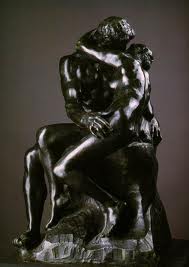
|
to marry the right person is to reconstruct the 'image of God'; marriage, more than love affair, is the sacrifice of the ego to a relationship wherein two become one
Editor's note: I find Dr. Campbell here to be shockingly wise and insightful.

Joseph Campbell, The Power of Myth: "...marriage is recognition of a spiritual identity. If we live a proper life, if our minds are on the right qualities in regarding the person of the opposite sex, we will find our proper male or female counterpart. But if we are distracted by certain sensuous interests, we'll marry the wrong person. By marrying the right person, we reconstruct the image of ... God, and that's what marriage is... I've been amazed at the number of my friends who in their forties or fifties go apart. They have had a perfectly decent life together with the child, but they interpreted their union in terms of their relationship through the child [not] their own personal relationship to each other. Marriage is a relationship. When you make the sacrifice in marriage, you're sacrificing not to each other but to unity in a relationship... You're no longer one alone; your identity is in a relationship. Marriage is not a simple love affair, it's an ordeal, and the ordeal is the sacrifice of ego to a relationship in which two have become one."
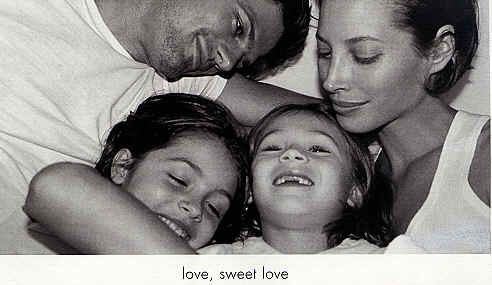
|
|





.jpg)






